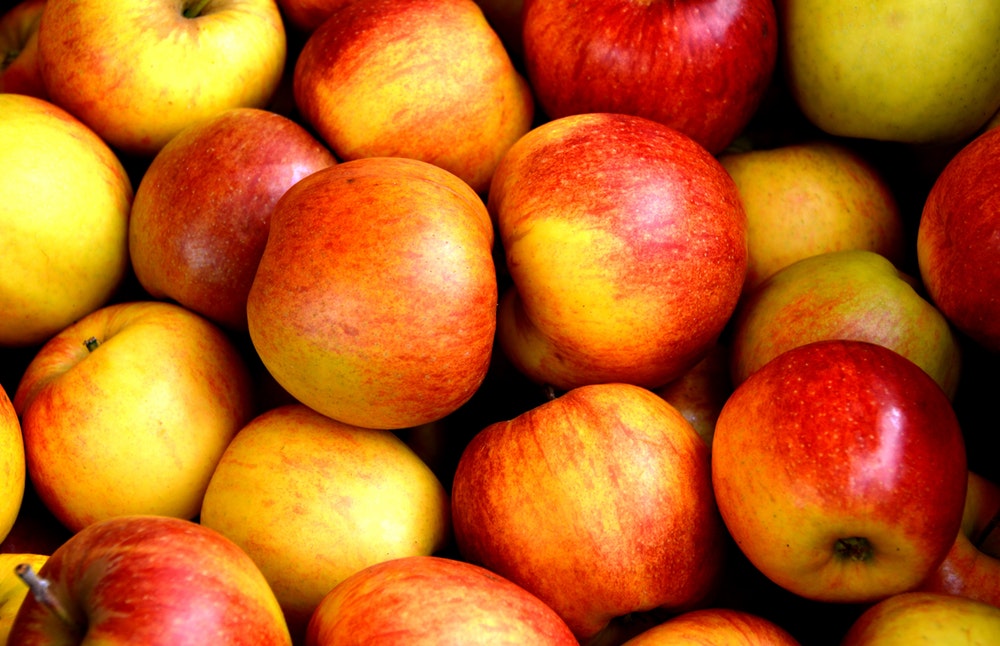If there’s anyone who can brag about the benefits of apple cider vinegar (and often does), it’s me. From being a favorite instant heartburn/indigestion remedy of mine to its successful removal of a hideous mole from my back in just five overnight applications, I’m most definitely a diehard fan. But wait — there’s more! ACV is also useful in many other ways, including a treatment for acne. Let’s check it out!
Apple cider vinegar is uniquely suited to treat a variety of ailments, especially on the skin
According to Deborah Burnes, “Fermentation is used to make the (apple) cider into vinegar. During this process, bacteria and yeast break down the sugars in the cider. First the sugars are turned into alcohol, and when the alcohol ferments further, you get vinegar. The word vinegar comes from the French, meaning, “sour wine.” The main ingredient of apple cider vinegar is acetic acid, however it also contains other acids (lactic, citric and malic), vitamins, mineral salts, and amino acids.” In addition, the exfoliating properties in ACV essentially “digest” dead skin cells, says Burnes, creating a “mild cell turnover” widely used to “improve, soften, and smooth skin texture.”
Apple cider vinegar is a superior treatment for an assortment of skin issues
Turns out apple cider vinegar is beneficial for the skin in several ways, and for more than just clearing acne. For example, ACV has been known to successfully minimize age spots, calm razor burns, and diminish or prevent wrinkles. And while most ACV promoters recommend only using the organic, raw, and unfiltered/unpasteurized brands containing “the mother” (or making your own at home), I can tell you for some situations, in a pinch, the others might work just fine as well.
Forget the smell and focus on the results
Although apple cider vinegar is slightly stinky when compared to the fruity or more lavish scents of most store-bought skin products or cosmetics, you’ll get over the smell once you see the results. Why else would celebritieswho can afford the most expensive products in the world opt for plain old apple cider vinegar instead?
Here’s the scoop (you heard it here first)
Since apple cider vinegar contains naturally occurring alpha hydroxy acids (you know, the stuff they try to sell you in about a million different beauty products?), it acts effectively on skin when applied directly – making it a superior facial toner as well as an age-spot reducer when applied directly to the skin. It’s also an excellent PH balancer, antibacterial and antifungal agent, and a lightener of hyperpigmentation. It can reduce oily skin (hence the acne remedy) as well as reducing redness, helping to unclog clogged pores, and possibly even assisting to decrease the excess sebum production associated with acne.
The Easiest Recipe Ever
Ready to make your first batch of DIY acne treatment? Just mix equal parts apple cider vinegar to water, and voila. There’s your homemade ACV toner! (You might not want to tell your friends who buy the expensive alpha hydroxy formulas, as they might actually cry.) Now you can apply it with a cotton ball to your freshly washed skin and then rinse off with just plain water. Some might wish to apply a light moisturizer afterward to prevent excessive dryness, but most are just fine after simply rinsing the ACV off with plain water.
Serious Problematic Acne Sufferers, Here’s Your Part
*At this point, for those with problematic acne, you may want to try leaving the toner on to dry for some time. If your skin can tolerate it without becoming extremely dry, you can try leaving it on overnight. For those who get too dry that way, rinse it off after applying and let your skin breathe overnight. And if that’s still too dry, you can use a honey rinse or apply an oil-free hypoallergenic light moisturizer after rinsing the toner off and drying the skin.
Some folks have had good luck mixing concoctions for acne remedies such as apple cider vinegar and aloe vera for an acne healing facial cleanser, or apple cider vinegar and tea tree oil to boost the healing power and reduce inflammation for acne sufferers. There are also recipes for mixing ACV with Manuka honey or mixing it with witch hazel and lavender essential oil to fight acne here.
*As with all my articles, consult your physician (or in this case your dermatologist) before attempting DIY or home remedies of any kind.

